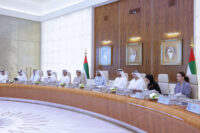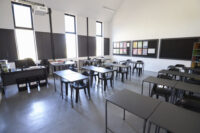Growing awareness coupled with governments’ support has led to an increase in international schools providing British, American and IB curriculums across the region
International schools are gaining in popularity across the GCC, with the number of institutions and enrollments, along with the volume of investment, growing significantly post COVID.
As per statistics made available by ISC Research, about 42 new international schools are expected to open across the GCC in 2023 and 2024 and enquiries for new schools continue on an almost daily basis.
Data available until mid 2022 suggests that the UAE has the largest number of international schools, with UK curriculum being the most popular.
Krishna Dhanak, Managing Director at Alpen Capital terms the increasing penetration of international schools /curriculums as a result of favourable demographics and demand for quality education.
International schools, according to him, have been on the rise over the past couple of years. This, he says, has led to the number of private schools in the GCC growing at a higher pace than the public schools.
“As a result, in countries such as the UAE, Qatar and Bahrain the number of private schools have surpassed the public schools. Kuwait and Oman are also witnessing an increase in the number of private schools, albeit slowly.” says Dhanak. However, given the demographic mix in Saudi Arabia the number of public schools are far more than the private ones.
Nalini Cook, Head of Global Research at ISC Research, a leading source of data and intelligence on the global English-medium international schools market, says Qatar, Saudi Arabia, UAE, Kuwait and Oman are all in the top six leading countries in the region.
“New international schools continue to open, with three new schools opened in Riyadh and 14 opened in Dubai this academic year (2022-23) in the Middle East. Several established international schools in Dubai and Riyadh have told our researchers they are planning campus expansions,” says Cook.
Increasing investments and mergers and acquisitions within the region are further evidence of increasing prominence of international schools.
“Many governments and developers are actively seeking investment in international schooling in their countries,” says Dhanak, adding that even public schools have started to adopt dual/ flexible curriculum models to cater to the evolving needs of the people.
“Growing awareness among nationals coupled with governments’ support to enhance the quality of education has led to an increase in international schools that provide British, American and International Baccalaureate (IB) curriculums across the region.
Meanwhile, UK curriculum continues to remain the most preferred among most schools in the UAE and Qatar except Saudi Arabia where the US curriculum is more popular.








